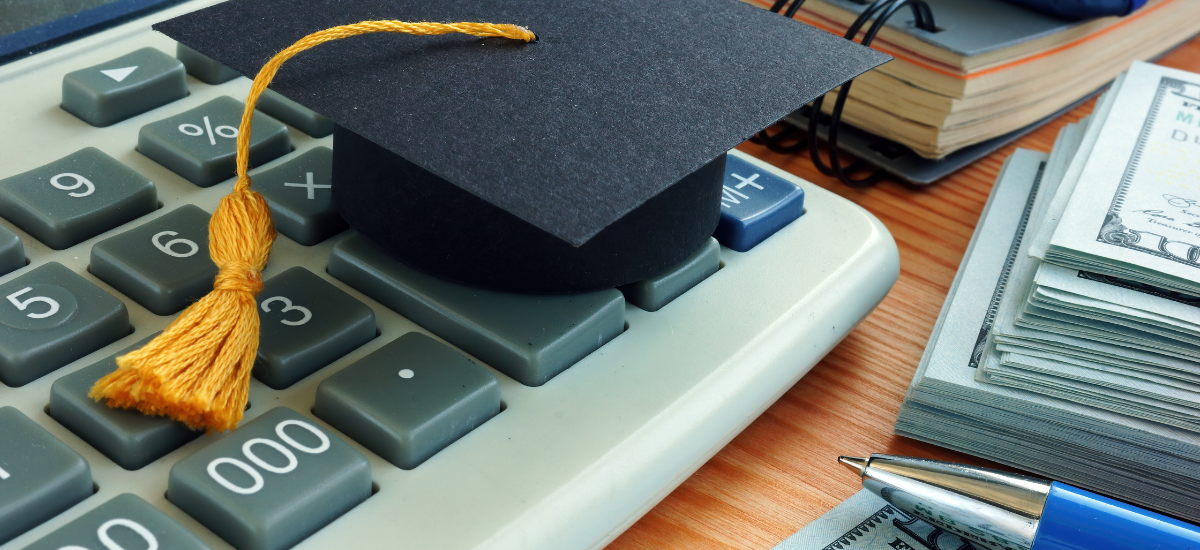4 Tips for Tackling Student Loans

- Posted on May 06, 2022
You’re not alone if you’ve struggled to repay your student loans. According to the Federal Reserve Bank of New York, over 46 million Americans live with student loan debt, holding them back from achieving life milestones. Paying off student loans takes time, sacrifice, and patience, but you can be on your way to a debt-free life. Keep reading to learn trusted techniques for paying off your student loans.
Know your Loans
Before you set financial goals or establish an action plan, it’s important first to revisit how much you currently owe in loans, the kinds of loans you have taken out, and most importantly—who they are owed to. For example, if you’ve received a federal student loan from the government to pay for your schooling, you can check the National Student Loan System to see how much you currently owe.
On the other hand, if you have taken out private loans from banks or credit unions, you can review your credit reports to view your loan status and what you have paid off.
Once you have accounted for all your loans and lenders, create a plan of action based on your selected repayment plan. For example, some people opt for a standard repayment plan where payments are fixed to ensure loans are paid off within ten years, while others require an extended repayment plan with fixed or graduated payments completed within 25 years. Take the time to review your options, find what works best for you, and consider reaching out to a financial professional for additional assistance.
Seek Opportunities
If you’re looking for a creative way to tackle student loan payments, consider picking up a side hustle to earn extra cash—every dollar helps. Unlike a standard 9-5 job, freelancing and side-hustle opportunities often allow you to dictate your schedule, wage, and hours. For example, consider joining platforms like Lyft or Uber to earn income as a driver during your commuting hours and spare time. Additionally, if you have old items you’d like to get off your hands, consider opening a shop on eBay or Facebook marketplace. Or, put your talents to use by seeking freelancing opportunities online, where you can make extra money designing, writing, or editing right from home.
Keep Saving
Though you may be focused on paying off student loans and other related debts early in your career, it’s essential to prioritize adding to a savings account and emergency fund to serve as a safety net as you navigate your financial journey. Even while you focus on paying off your debt, money dedicated to emergencies and long-term savings can help you cover necessities if times get tough or the unexpected occurs.
Set Goals
The road to debt-free financial freedom can be a long one. With plenty of twists and turns, it’s easy to get discouraged about being able to fully pay off your student loans in a reasonable time frame. However, setting both long and short-term goals can help you stay motivated and on track to a debt-free life.
For example, start small by setting the goal of making a small payment each month towards your student loans or saving towards paying off a particular loan; as you progress, be sure to set significant umbrella goals such as paying off half your student loans by a specific year. It also helps to visualize financial milestones, such as buying your first home or going on your dream vacation, to keep you on track and motivated toward financial freedom.
Need Financial Advice?
Check out our previous blog post on To Rent or Buy a Home. In addition, if you need personalized financial advice, our team is always here to help—contact us today to book an appointment!



